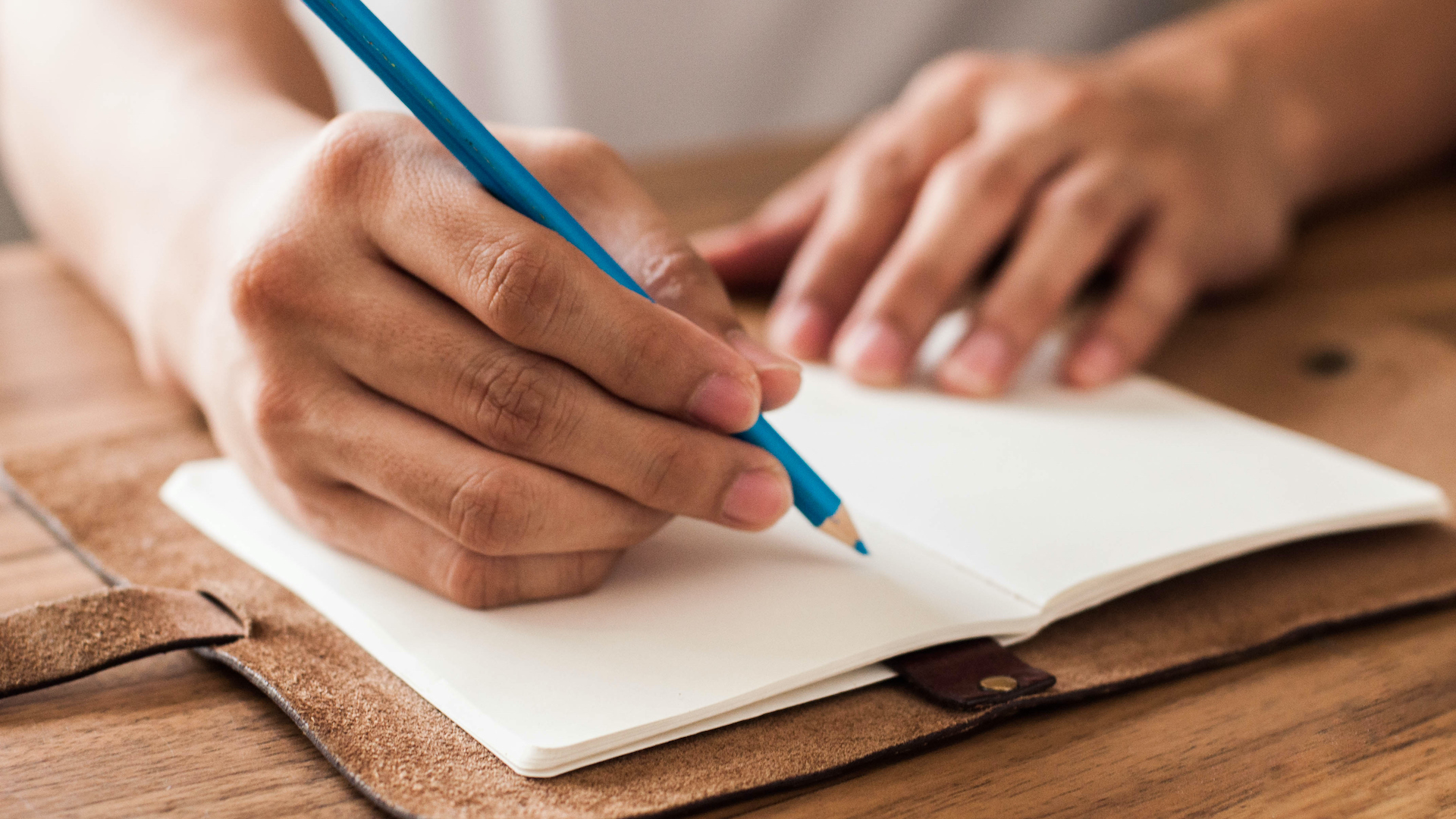
Not to be confused with Allyson Apsey's middle-grade novel, a serendipity journal is the perfect addition to your spiritual toolkit.
Plenty of us keep a self-care journal or even a gratitude journal, but this new twist on a personal diary examines areas in our lives with an "active luck mindset." If you're keen on TikTok trends like Lucky Girl Syndrome or enjoy manifesting with crystals, allow us to introduce you to your new favorite wellness practice.
"A lot of times it's about where do we put our attention and how do we see— especially positively—unexpected things in life more often," Christian Busch, Ph.D., the author of The Serendipity Mindset: The Art & Science of Creating Good Luck, tells My Imperfect Life.
He adds: "We live in a world that's so uncertain and there are so many moving pieces, and a lot of us feel extremely overwhelmed. And the beautiful thing about a serendipity journal is that it not only focuses on the nice to have, but it's also a way to reframe the unexpected from just being a threat."
What is a serendipity journal?
According to Busch, a serendipity journal will allow you to encounter serendipity (a.k.a. active luck) more often. This type of note-taking helps you to piece together events in your life to better understand how they're all tied together, even if you didn't originally think so. The idea intends to help you embrace unpredictability and use that uncertainty to your advantage. Plus, it's a great way to flip the script and keep things positive.
"A lot of times, we prepare for the negative, the unexpected," Busch says. "But we don't do necessarily the same for the positive unexpected. A journal is a great way to focus our attention on it."
And in doing so, we can take a look at serendipitous moments that occurred that we didn't act on, which will help us better understand where our fears lie. From there, we can change our behaviors to embrace those unexpected positive moments more often.
How do you start a serendipity journal?
According to Busch, there are a few ways to break into this new type of journaling, and you'll need to do some reflection.
1. Think back
Busch tasks us with looking back at three impactful events in our lives over the course of the last six months and examining how they're intertwined. These will be the building blocks you need to start "connecting the dots" of unrelated events that brought you to where you are now.
2. Think about alternatives
When reflecting, think about the possibilities that could have transpired had you chosen another outcome. This will allow you to understand whether or not those choices were even viable.

3. Make a To-Do List
Now's the time for action: write down a few serendipitous occurrences that you let go of but would like to act upon. Once you find one that speaks to you, make it happen.
4. Compare and contrast
Once you have your goals in mind, compare your dreams to what you're doing in your day-to-day life. How do they look, side-by-side? Are there any changes that you need to make? Now is the time to adjust accordingly.
5. Explore past failures
Let's say you found yourself in a serendipitous moment, but nothing came from it. Why? How were you responsible for the outcome, and how would you change your behavior in a similar situation going forward?
How to use a serendipity journal daily
"It's starting with baby steps. It's not thinking, 'Oh my God, I have to spend 20 hours a week on writing these things now," Busch says.
Every day, or every second day, he recommends you think about one or two things that may have surprised you, or something could've happened but it didn't. Jot them down. As this journaling becomes more habitual, you'll take a look back and notice patterns, perhaps where you were fearful to take a risk or where you could've pursued something.
If we didn't know any better, this sounds like an opportunity to grab a cute new notebook and change our mindset for the better.
"That's one of the most important things to me, that we feel like we're agents of our own luck and it's not just the world happening to us—we can also happen to the world," Busch says.
Enjoy scribbling, friends! Check out our tips for journaling for beginners if you need some inspo.







